Call anytime
-
-
Send email
[email protected]
-
Serving
Southeastern Michigan
Suburban Basement will request a water test if the repairs you received require it.
The “water test” or “water leak test” helps to ensure that the repair was effective. Some cracks require a touch-up to completely seal the area sufficiently.
This is especially important if you intend to finish or refinish the repaired area. When possible, we ask for the test to be performed 2 days in a row to properly emulate a heavy rain.
Do Not Perform a Water Test the same day as the repair
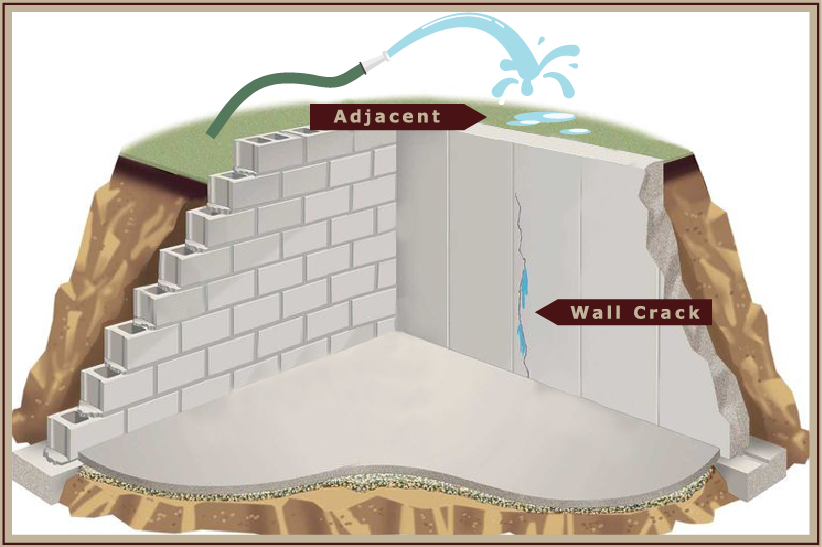
Having a finished basement is a nice feature for your home. It increases your floor space and adds value. When a leak is found in a finished basement it can be very frustrating for the homeowner. The fact is that this nice feature you have added to your home makes it difficult to find the source of the leak.
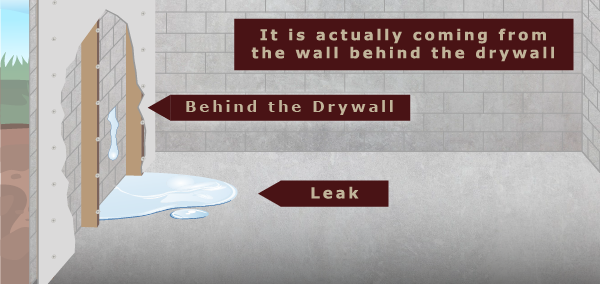
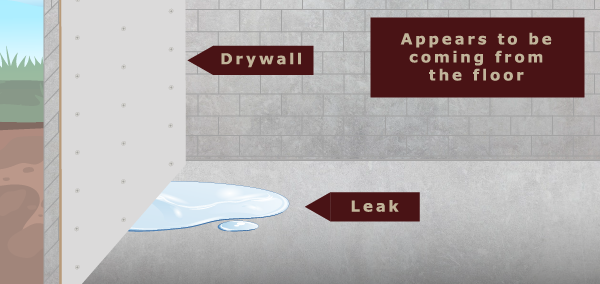
Most often when a leak is found in a finished basement it appears to the homeowner that the leak is coming up through the floor. Whenever we hear this issue from a homeowner, we ask;
The reason being that the true cause is most often a crack, rod hole or some other issue that is allowing the water to enter through the foundation wall. Once the water comes through the wall of the foundation it travels down that wall and comes out under the drywall.
These items may be helpful but the truth of the matter is that they can be unreliable.
Inspection camera’s do not always give a clear picture of the foundation wall that a technician would be looking for. The picture can be obscured by dust, electrical wires, foam board and insulation. This can cause errors in estimates and require additional costs once the wall is opened up.
Moisture meters often give false readings as they are meant to detect moisture and both the foundation wall and drywall are porous and hold certain amounts of moisture naturally.
Suburban Basement does not like asking homeowners to remove drywall. We know the time and cost to remove and replace it. However we are dedicated to providing effective and honest solutions to homeowner’s waterproofing needs. This means that we will want to see what is happening behind that drywall. As expected homeowners do not like hearing that removing the drywall may be needed as well. One item that we like to remind homeowners of is that if the leak truly is coming in behind the drywall that moisture is building up on the back side of the wall and could lead to mold growth. Therefore they will likely want to replace that drywall.
To make things as easy and smooth as possible we have put together a diagram that shows how and where to start in the removal of the drywall.
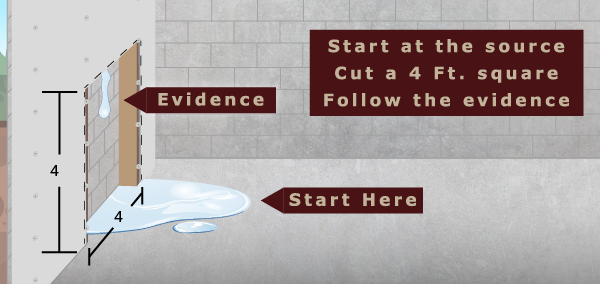
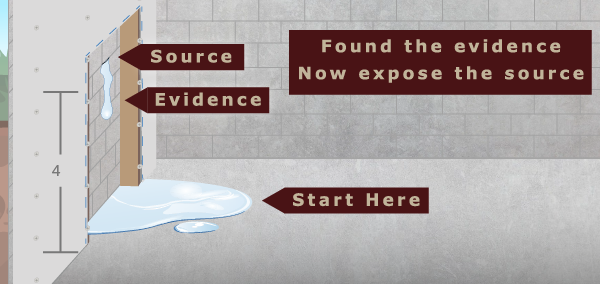
We advise all of our homeowner that they can contact us during this process if they have questions. They can send us pictures if they are unsure that enough area is exposed or any other questions they may have. We will do our best to make the process as painless as possible.
Ask about our Lifetime Warranty
Serving Southeastern MI
Copyright © 2024 | Privacy Terms | website by Friendly Design